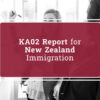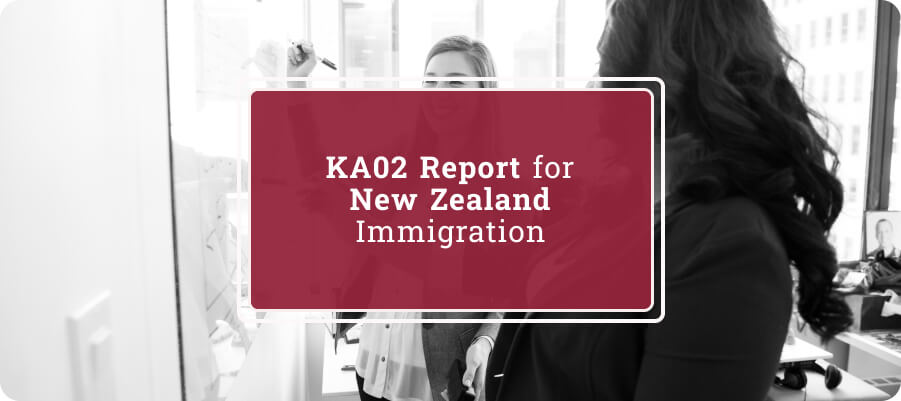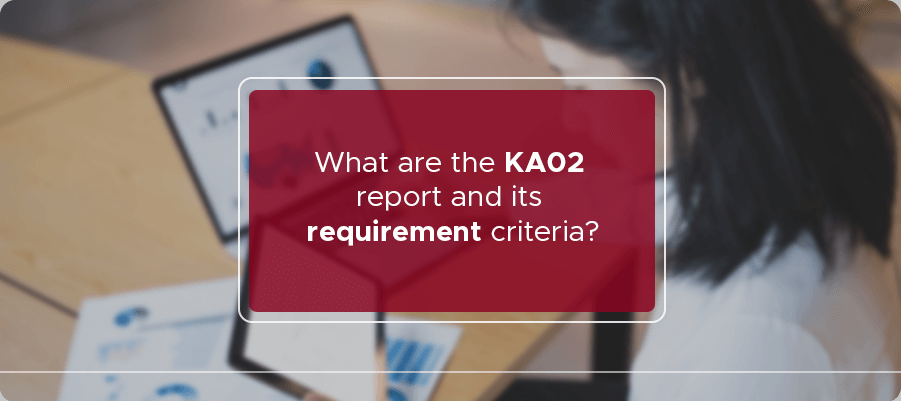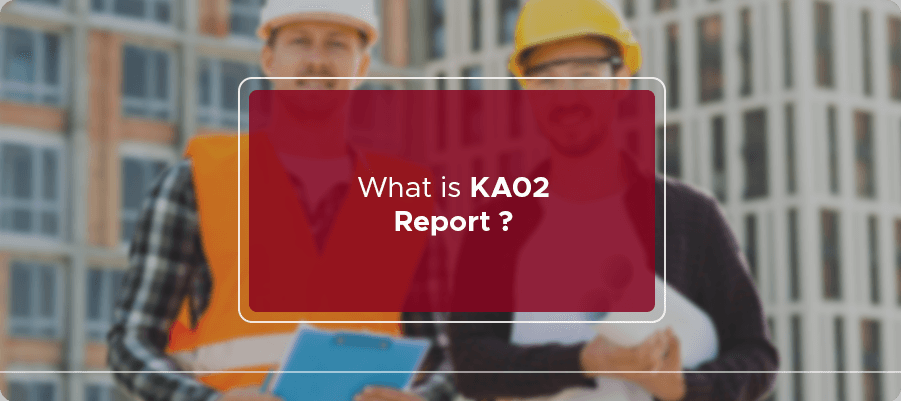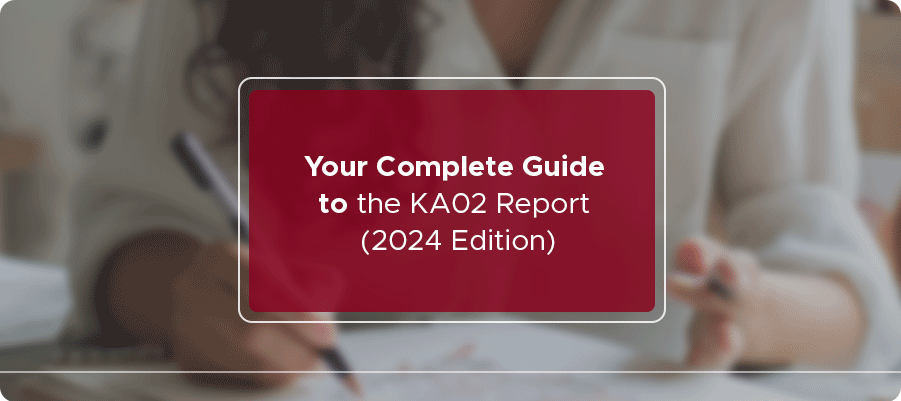
Your Complete Guide to the KA02 Knowledge Assessment (2024 Edition)
Is New Zealand your ideal destination to advance your engineering career? If so, you should be familiar with the KA02 Knowledge Assessment. This assessment is crucial whether you’re aiming for migration, professional registration, or career growth.
This guide will help you achieve your engineering dreams in New Zealand. Keep reading to learn about:
- Who needs to take the KA02 Assessment
- The required documents
- Tips to improve your chances of success
So, what is the KA02 Knowledge Assessment? Let’s find out.
🔑 Key Highlights
- KA02 assessment is vital for engineers seeking skilled migration, registration, and career growth in New Zealand.
- There are Standard and fast-tracked assessment options.
- Competency must match Washington Accord engineering graduates.
- Key documents: academic transcripts, KA02 report, payment proof; additional documents may include CV, passport, and registrations.
- Professional report writing helps boost success in the assessment, which includes a review, interactive assessment, tests, and a final decision.
What is KA02 Knowledge Assessment for Engineers?
The KA02 Knowledge Assessment is a test for engineers who want to move to New Zealand. It checks their skills and knowledge in different engineering areas according to New Zealand’s standards.
It’s carried out by assessors from Engineering New Zealand (ENZ), which used to be called the Institute of Professional Engineers of New Zealand (IPENZ).
Note: Despite the name change of the organization, many people still call the assessment process “IPENZ KA02 assessment” instead of “Engineering New Zealand KA02 assessment.”
What are the differences between KA01 and KA02 Knowledge Assessment?
Here’s a simple table outlining the main differences between KA01 and KA02 reports:
| Aspect | KA01 Report | KA02 Report |
| Degree Affiliation | Degree from a Washington Accord-affiliated college | Degree not from a Washington Accord-affiliated college |
| Purpose | Assess qualifications for practicing engineering in NZ | Assess qualifications for practicing engineering in NZ |
| Applicant Criteria | Applicants with degrees from accredited institutions | Applicants without degrees from accredited institutions |
| Accreditation | Degree is recognized and accredited by the Washington Accord | Degree may not be recognized or accredited by the Washington Accord |
| Evaluation Criteria | Assessment primarily based on accredited degree and academic qualifications | Evaluation based on experience, skills, and non-accredited qualifications |
| Documentation Required | Proof of degree from accredited institution | Comprehensive documentation of engineering experience and skills |
| Assessment Method | Focuses on academic qualifications and specific engineering competencies | Emphasizes practical experience, competencies, and skill set |
| Review Process | Typically straightforward review process based on academic credentials | May involve more detailed assessment of non-academic qualifications |
| Eligibility | Suitable for applicants with accredited engineering degrees | Suitable for applicants with non-accredited engineering degrees or related experience |
Eligibility For KA02 Assessment
To be eligible for the KA02 Knowledge Assessment, you need to meet the following criteria:
- Education: You can apply if you do not hold a four-year Bachelor’s degree from a university accredited by the Washington Accord or from a university in New Zealand.
- Work Experience: You need to show that you have applied engineering skills in real-life situations through 3-4 projects or activities during your work or studies. This experience should demonstrate your ability to use engineering principles practically.
- Competency: You must prove that your knowledge level is equivalent to that of a graduate from a Washington Accord accredited program.
Benefits of the KA02 Assessment
This assessment is beneficial for both people wanting to move to New Zealand and the country itself. Here are some main advantages:
For individuals:
- Skilled migration: A successful KA02 assessment is crucial for getting visa approval and migrating as a skilled worker.
- Career recognition: It increases an engineer’s market value and opens up job opportunities nationally and internationally.
For New Zealand:
- Skilled workforce: The assessment ensures that only skilled and competent engineers join the workforce.
- Economic growth: Bringing in skilled professionals through migrant visas helps boost the economy.
There are two ways to assess knowledge:
- Standard Knowledge Assessment
- Fast Track Knowledge Assessment
| Standard Knowledge Evaluation | Fast Track Knowledge Evaluation | |
| Eligibility | Applicable to engineers for various purposes, including immigration or chartered membership. | Intended solely for engineers seeking immigration assessment. |
| Processing Time | Takes approximately 50 working days. | Completed in around 25 working days. |
| Cost | $1,292.50 (excluding GST) | $1,792.50 (excluding GST) |
Get your KA02 Report Review By Our Expert Team ⭐💪🚀📄
What are essential documents for KA02 Knowledge Assessment?
To complete the KA02 Knowledge Assessment, you’ll need:
1. Academic Transcript: Academic transcripts are like official reports from schools that show what classes you took, the grades you received, and how well you did overall in engineering or similar subjects.
2. KA02 Report: The KA02 Report is a crucial document used by Engineering New Zealand to evaluate engineers applying for skilled migration. It assesses your skills and competence based on the standards set by the Washington Accord. To complete the report, you’ll need to include a Summary Statement form and a Self Assessment form. If you’re unsure about writing the KA02 Report correctly, you can reach out to us for assistance with our KA02 report writing service.
3. CV: A detailed and well-structured CV with your work history is highly recommended by Engineering NZ. It provides assessors with an overview of your professional background. Keep your CV focused and relevant. A maximum of three pages is recommended.
4. Payment for KA02 assessment fee: Proof of payment for the KA02 assessment fee.
5. Additional Documents: We need to provide some additional documents too for the KA02 Assessment and they are :
- Continuing Learning Record: It’s not a must, but it’s suggested to keep track of any learning activities you do. Write down the activity’s name, what type it is, when you started and finished it, how many hours you spent on it, and what you learned from it.
- Passport Copy: Make a certified copy of the main page of your passport, the one with your photo on it.
- Professional Certifications: If you’re already certified as an engineer in another country, show proof of your certification.
- Language Test Results: If English isn’t your first language, you might need to take a test like IELTS or TOEFL and get a certain score to prove your English skills.
Additional note: Remember, any paperwork you submit needs to be in English or come with official translations. Make sure to look at the newest version of the KA02 assessment guidelines for the latest info.
Why is Professional Assistance Essential for KA02 Knowledge Assessment?
There are several justifications for seeking assistance from a professional.
- Enhancing success rates with expert guidance
Boosting success rates with expert help Experts have a lot of experience and understand the assessment process well. They can foresee potential problems and address them effectively, leading to a smoother and more successful outcome. - Document preparation
Creating documents that meet assessors’ expectations takes experience, especially for the KA02 report. Experts write your report by matching your qualifications with the standards of the Washington Accord. - Save Time and effort
Creating documents can take a lot of time and be complicated. By hiring experts to handle the research, writing, and formatting, you can focus on other important parts of your application. - Language Difference
If English isn’t your first language, professionals can help make sure your report is correct and easy for the evaluators to understand.
Successfully completing the KA02 knowledge assessment is essential for engineers. It’s more than just a checklist; it’s a demonstration of your engineering capabilities. Seeking professional assistance is advisable for maximizing your chances of success.
Once you’ve completed and submitted your KA02 application, it’s important to be aware of what comes next in the process. Take some time to review the following details about the subsequent phases of the evaluation process.
What are activities done in the Knowledge Assessment Process?
Following the submission of your application, the knowledge assessment process commences. The procedure unfolds in several steps:
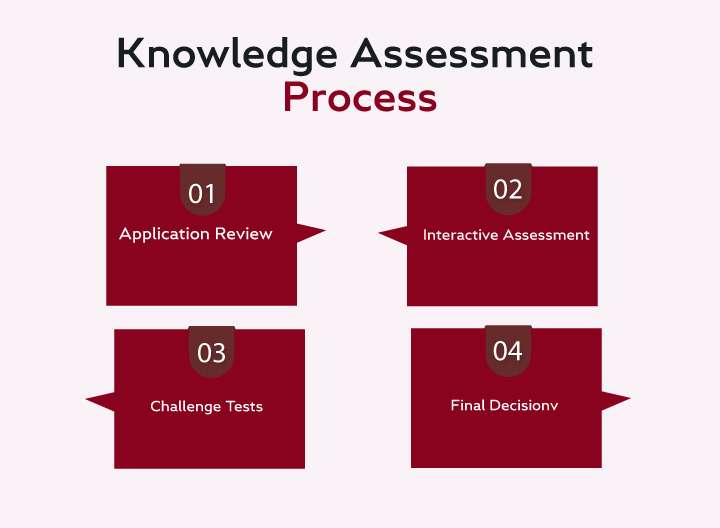
- Application Review: Your application undergoes examination by an appointed assessor.
- Interactive Assessment: This phase entails a detailed discussion of your application via a video conference, typically lasting 60-90 minutes.
- Challenge Tests: Additional evaluations such as oral or written examinations, work simulations, and case studies may be required.
- Final Decision: Upon completion of all assessments, you will receive notification of the final verdict.
What are the goals of this knowledge assessment?
The knowledge assessment can result in three potential outcomes, as determined by the evaluation process:
1. Positive Assessment
If you meet all the qualifications and demonstrate the same level of skill as a graduate recognized by the Washington Accord, you’ll receive a favorable evaluation. After that, you can apply for a CPEng through the online portal.
2. Strategies for Closing the Knowledge Gap
If your abilities don’t meet the Washington Accord standards, the evaluator will identify areas for improvement and offer suggestions to fill those gaps.
Here’s the deal:
If they point out one or two areas to work on, you won’t be charged for another evaluation as long as you show evidence of improvement within a year.
But if they flag three or more areas, it’ll cost you $500 (excluding taxes) for another evaluation, again with the condition of showing progress within a year.
3. Negative Assessment:
Engineering NZ strongly advises creating a thorough and organized CV outlining your work experience. This document offers assessors insight into your professional journey and should not exceed three pages in length.
Important Sections of the KA02 Report
- Knowledge Profile
This section details the applicant’s academic and professional qualifications, showcasing their expertise in the engineering field. It should emphasize the applicant’s proficiency and experience within their engineering discipline. - Evidence of Application of Knowledge
Here, candidates need to share real-life examples of engineering projects they’ve worked on. These examples should be detailed and show how they handled the tasks they were given. - Supplementary Evidence
This part is optional but can make your application stronger. It’s where you include any extra documents that support your case, like certificates, papers, or awards. - Continued Professional Development Summary
This section highlights the applicant’s commitment to ongoing professional growth. It should summarize their participation in professional development activities, such as conferences, workshops, or training programs, demonstrating their effort to stay current in their field.
Challenges Faced by Applicants
- Providing Evidence for Work Episodes: Applicants might struggle to document their work experiences comprehensively.
- Demonstrating English Writing Skills: Ensuring clarity and proficiency in English can be challenging.
- Showcasing Communication Abilities: Effectively demonstrating communication skills may be difficult.
- Including Calculations, Charts, and Sections: Incorporating technical elements like calculations and charts can be challenging.
Applicants must address these areas effectively to enhance their report’s quality and demonstrate their competencies.
Elements in the KA02 Report
- Knowledge of Natural Science
Applicants must show an understanding of theory-based natural science, such as calculus-based physics, and the scientific method. - Mathematics
Demonstrating knowledge in mathematics, computer science, and statistics is essential. - Theory-Based Formulation
For an engineering career, applicants must understand core engineering areas and apply their knowledge to solve problems. - Research-Based Knowledge
Applicants should demonstrate engagement with a specific research field, showcasing their expertise and connection to ongoing research activities.Get your positive KA02 Knowledge Assessment from Professionals. Free Consultation Available 🚀✨💪
FAQs
Who needs to take the KA02 Knowledge Assessment?
The KA02 Knowledge Assessment is something engineers need if they want to move to New Zealand, get certified to work there, or move up in their careers.
What documents are necessary for the KA02 Knowledge Assessment?
Important papers you’ll need are school records, the KA02 report, receipts, and maybe a resume, a photocopy of your passport, certificates from work, language exam scores, and a log of your ongoing education.
What are the two assessment pathways for the KA02?
When you submit your KA02, you have two choices for assessment: Standard and Fast Tracked. The Fast Tracked option usually takes around 25 working days, while the Standard one takes about 50 working days.
Why should I consider professional assistance for my KA02 report?
Getting help from a professional can really boost your chances of success. They make sure your documents meet what the assessors are looking for, which saves you time and effort. Plus, if English isn’t your first language, they can support you with the language.
What are the possible outcomes of the KA02 Knowledge Assessment?
Your evaluation can be positive or negative based on whether your skills meet the Washington Accord standards.

